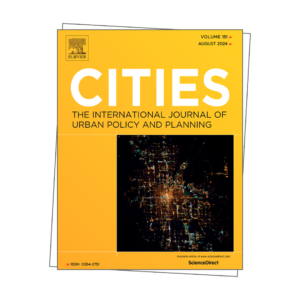Increasingly guided by the use of ICT, the flow of humans and materials, smart cities and autonomous mobility amalgamate into a game changer in urban planning. This paper critically explores the role of autonomous (driverless) vehicles in plans for urban futures. By looking into the urban plans of 10 European capitals, we investigate the anticipated promises and hazards of autonomous vehicles. Theoretically, the paper draws upon critical urban mobilities studies that invite interlinking carbon reduction, smart cities and mobility planning. By examining these plans, the paper critically evaluates current urban planning for autonomous vehicles by asking whether one can identify any links to the United Nations Sustainable Development Goals of sustainable cities and communities. A practice-based view on automation is then suggested as a pathway to promote a thorough sustainable mobility transition. It is concluded that none of the plans of the 10 capitals studied require AVs to integrate with public means of transport or to be fuelled by renewable energy sources. Hence, AVs are likely to individualise and intensify the existing automobility regime further and emissions are likely to increase, according to the comparative urban analysis. We therefore conclude that urban policy-making needs to contest the existing techno-centric conception of autonomous vehicles if these are to support the sustainable development goals of cities
 PAVE US
PAVE US PAVE EUROPE
PAVE EUROPE PAVE UK
PAVE UK

